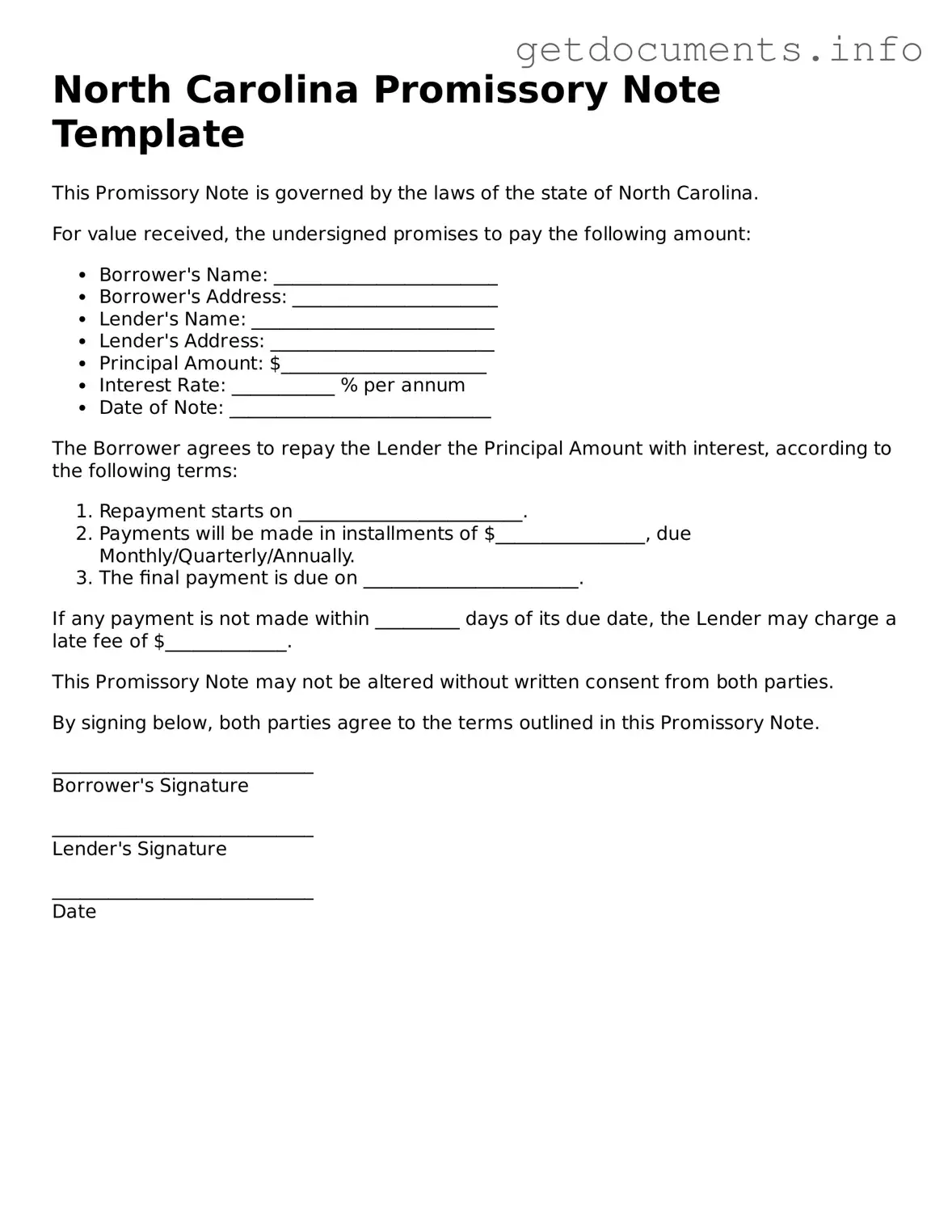Free Promissory Note Template for North Carolina
A North Carolina Promissory Note is a legal document that outlines a borrower's promise to repay a specified amount of money to a lender under agreed-upon terms. This form serves as a written record of the loan, detailing the amount borrowed, interest rate, and repayment schedule. Understanding this document is essential for both lenders and borrowers to ensure a smooth transaction and protect their rights.
Ready to fill out your North Carolina Promissory Note? Click the button below to get started!
Access Promissory Note Editor

Free Promissory Note Template for North Carolina
Access Promissory Note Editor
Got places to be? Complete the form fast
Fill out Promissory Note online and avoid printing or scanning.
Access Promissory Note Editor
or
⇩ PDF File
